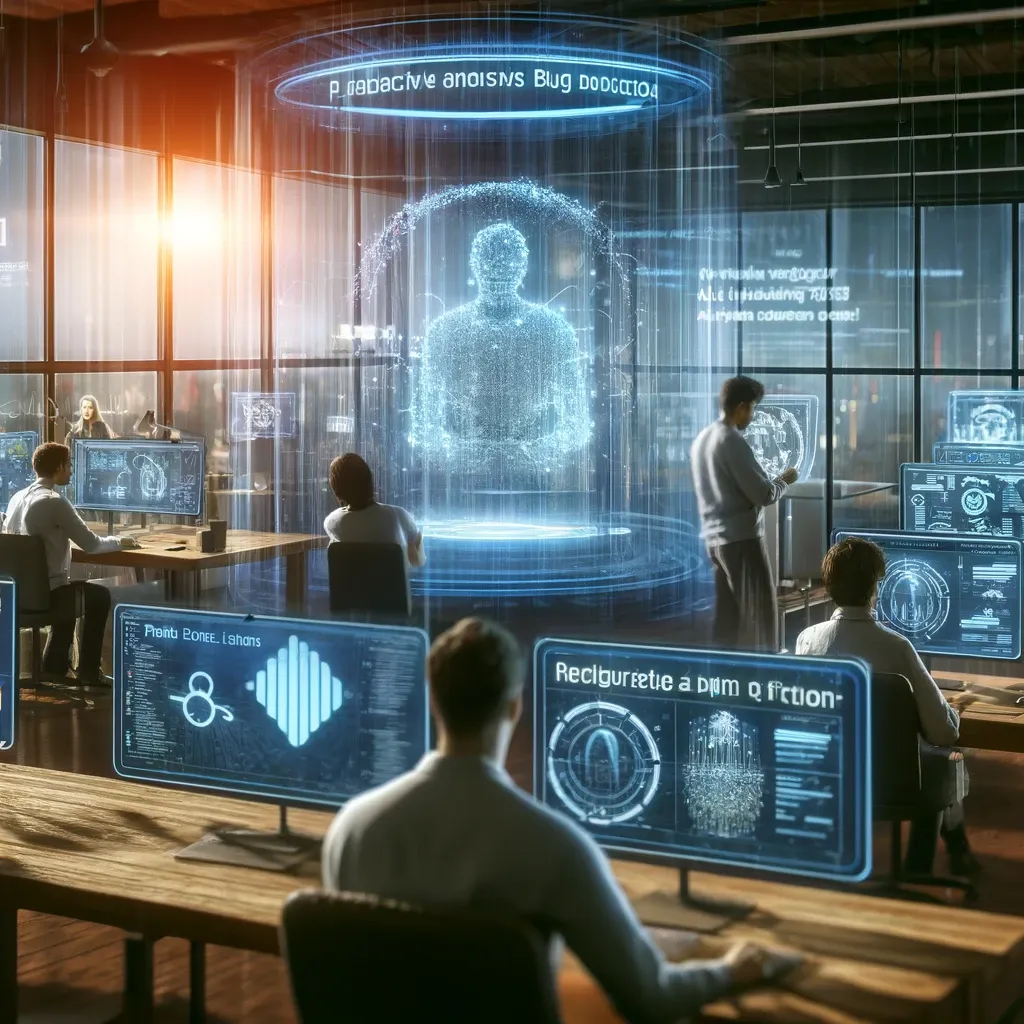
In the bustling city of Austin, Texas, a new start-up named HealthTech Innovations was born. This company aimed to revolutionize the healthcare sector with a state-of-the-art application designed to manage patient records, appointments, and billing seamlessly. With healthcare being a billion-dollar industry, ensuring the software’s reliability was crucial. This is where Texas Integrated Services stepped in with their AI and LLM (Large Language Model) solutions.
Predictive Analytics for Bug Detection: Catching Issues Early
In software development, bugs are inevitable. The key is catching them early before they become major issues. HealthTech Innovations faced this challenge head-on. Their application had several modules, each handling different aspects of healthcare management. Some modules were more prone to bugs than others, and identifying these high-risk areas was vital.
Texas Integrated Services introduced their predictive analytics for bug detection. By analyzing historical data from past projects, AI could predict where bugs were most likely to occur. This technology identified patterns in the data that pointed to potential issues. For example, if a particular module dealing with patient billing had a history of bugs, AI would flag it for closer inspection.
This allowed HealthTech’s testers to focus their efforts on these high-risk areas. By prioritizing these modules, they could catch issues early in the development process, reducing the time and cost of fixing bugs later. This proactive approach ensured a smoother development cycle and a more reliable final product.
Real-World Impact: HealthTech Innovations’ Journey
Initially, HealthTech’s CEO, David, was unsure about integrating AI into their testing process. However, he soon saw the benefits. During a team meeting, the predictive analytics results were displayed on holographic screens, highlighting high-risk areas in their software. The developers, a diverse team of tech enthusiasts, were impressed by the AI’s insights.
“AI is like having an extra set of eyes,” said Maria, HealthTech’s lead developer. “It helps us see potential issues we might have missed, allowing us to focus our efforts where they’re needed most.”
As the AI analyzed the software, it identified a pattern of bugs in the appointment scheduling module. By flagging this module, the testers were able to dive deep into the code, uncovering and fixing issues before they could affect users. This not only improved the software’s reliability but also boosted the team’s confidence in their product.
Collaboration and Innovation
The integration of Texas Integrated Services' AI and LLM didn’t just improve the testing process; it fostered a culture of collaboration and innovation within HealthTech Innovations. The team could focus on creative problem-solving and developing new features, knowing that the AI was helping to ensure the software’s stability.
Every day, the office buzzed with excitement as developers brainstormed new ideas, confident that their AI-powered assistant would handle the intricate task of bug detection. The modern ergonomic workstations, holographic displays, and dynamic atmosphere made HealthTech Innovations’ office a hub of creativity and productivity.
The Future of HealthTech Innovations
With AI handling predictive analytics for bug detection, HealthTech Innovations was able to launch their application ahead of schedule. The app quickly gained traction in the healthcare sector, praised for its seamless integration of various healthcare management features and its reliability.
David credited their success to the partnership with Texas Integrated Services. “Integrating AI into our development process was a game-changer,” he said. “It allowed us to innovate faster and deliver a product that our users love and trust.”
As HealthTech Innovations continued to grow, they remained committed to leveraging AI and LLM technologies. They knew that staying ahead in the competitive healthcare industry required constant innovation and efficiency, and with Texas Integrated Services by their side, they were ready to tackle any challenge that came their way.
Holographic screens are actually 8K screens. The holographic sounded better than a flat monitor that was high def.
Contact Information:
- Phone Number: 832-338-2926
Subscribe to Our Newsletter: Stay updated with the latest AI trends and innovations by subscribing to our newsletter.
At Texas Integrated Services, we’re not just service providers; we’re your partners in innovation and growth. Let us help you harness the power of AI to transform your business.
Copyright © 2024. All rights reserved.